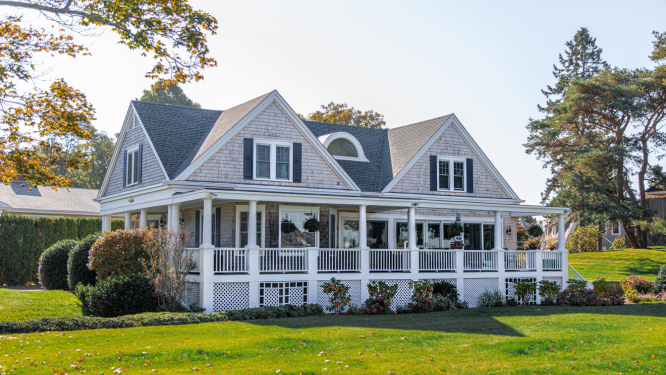Luxury Real Estate Funds: A Comprehensive Overview
Luxury real estate funds offer investors long-term growth with stable returns and diversification within their portfolios. They are relatively obscure for everyday investors to enter the fray of investing. Here, we explore everything there is to know about real estate funds. Their fundamental features, such as pros/cons/risk factors/action steps necessary to start investing now.
Luxury Real Estate Funds
Luxury Real Estate Funds (LREFs) are investment vehicles that pool funds from multiple investors to purchase and oversee high-end real estate properties to increase their investors’ value and income. Such funds specialize in luxury commercial or mixed-use property investments with skilled management. That diversify portfolios of high-end real estate properties managed by highly trained specialists.
Why Invest in Luxury Real Estate Funds?
Luxury real estate markets have long been known to generate high yields. Prime areas where property values tend to appreciate rapidly attract investors who see income-producing funds as another potential way forward. In addition to potential income potential and diversification benefits. Other features draw people towards these types of funds as investments we will take a look.
Characteristics of Lux Real Estate Funds
Luxury Real Estate Market: Five High Return Potential
As time progresses, luxury real estate appreciates particularly within prime market areas such as beachfront mansions and penthouses. Which draws in people of high net worth and drives up costs while simultaneously yielding substantial profits.
One of the primary advantages of investing in luxury property funds is their capacity for diversification. They typically hold multiple types of properties that reduce risks by spreading your investments across markets, locations, and sectors.
Tangible Asset Backing
Real estate provides investors with tangible assets they can own. Luxury properties offer investors peace of mind because their values will hold even in volatile markets.
How to Evaluate Luxury Real Estate Fund
Management Team Expertise
One key criterion for judging any real estate investment fund is its management team’s knowledge and experience. Luxury real estate investments require expert market understanding and connections in this arena seek a group with extensive experience managing high-priced properties.
Review your investment fund’s past performance history to ascertain its stability and growth potential. Monitoring its history could give valuable insight into its stability as an asset allocation and growth mechanism.
Market Conditions
The condition of the luxury real estate market must be considered as part of any decision process. When markets are flourishing, luxury real estate prices often experience substantial appreciation; conversely, during times of decline,
they could underperform considerably and potentially underwhelm. Always remain informed on market trends before making your final choice.
Types of Luxury Real Estate Funds
Residential Luxury Funds
Residential luxury funds specialize in premium properties like luxurious houses, villas, and estates. Which are particularly appealing in areas where demand for luxurious living continues to thrive.
Commercial Luxury Funds
Commercial luxury funds invest in high-end commercial buildings, retail spaces, and hotels featuring long-term lease agreements and rich tenants to generate consistent income streams for these funds.
Mixed-Use Luxury Funds
Mixed-use funds offer investors a balance of capital appreciation and income by offering commercial, residential, and retail properties within one project. Most mixed-use developments can be found within cities or urban centers, providing investors with equal measures of appreciation and return.
Steps for Beginning Investment in Luxury Real Estate Funds
Select the Appropriate Fund
Before investing, the appropriate investment fund must fit your goals. Do you seek income in the short term or capital appreciation over longer periods? Understanding your objectives will allow you to select an excellent option.
Investment and Entry Costs
Most luxury real estate funds require significant initial investments, ranging from hundreds of thousands to millions of dollars. Be prepared for these costs before signing an agreement or joining.
Once your investment is in the ground, its performance must be monitored closely. For best results, review quarterly reports, market developments, and any information regarding properties included within your portfolio regularly.
Risks and Challenges in Luxury Real Estate Funds
Market Volatility
Market Volatility Although luxury properties can produce lucrative yields. Their market valuation may fluctuate drastically due to unexpected economic recessions or adverse market changes that reduce their worth significantly.
Economic Downturns
Luxury properties may experience decreased demand during an economic downturn. High-net-worth renters or buyers with reduced budgets may reduce rental returns or see value stagnate, resulting in decreased rental returns or value stagnation. This could potentially have serious ramifications on rental returns and values alike.
Legal and Regulatory Factors
Investments in luxury real estate properties, particularly those on the secondary market, are vulnerable to numerous legal and regulatory factors that impede their profitability. Changes to laws regarding zoning regulations or taxes could adversely impact returns from these investments.
Before investing in luxurious real estate funds, it is vitally important that investors understand the tax ramifications. Depending on where your residence and investment are based and which kind of investments you make, you may be subject to capital gains tax liability in addition to property or other taxes. It would be prudent to consult a tax professional to manage these complex issues more successfully.
Conclusion
Luxury Real Estate Funds provide a convenient and effective means of diversifying an investor’s portfolio while simultaneously accessing properties of high standards. Pooled funds take advantage of the surge in high-end real estate demand and offer strong potential returns regarding capital growth and rent income without burdensome ownership commitment. By pooling their money together, investors gain access to exclusive properties without owning one property individually. However, as with any investment, real estate funds carry some risk associated with market fluctuations and regulatory concerns. An intentional focus on future conditions and an understanding of current conditions are paramount when selecting real estate funds as investments. Selecting funds with appropriate approaches and strategies makes your portfolio even stronger.
FAQs on Luxury Real Estate Investment Funds
What’s the minimum investment required in high-end real estate investment funds?
It varies depending on which fund; typically, anywhere from $100 to $1 million is recommended as the minimum capitalization requirement for these luxury funds to provide passive income streams.
Can high-end real estate funds provide passive income sources?
Absolutely; many investment funds in luxury real estate generate rent for investors, providing an ongoing stream of income.
Are luxury real estate investment funds affected by market conditions around the globe?
They depend on both global and local economic environments that influence property
value and rental yields, respectively.
How liquid are these investments?
Real estate funds with high-end designs tend to be more liquid than stocks or bonds since selling property may take time.
What tax advantages exist from investing in high-end real estate investments?
Depending on where you dwell, assess derivations on devaluation, contract intrigued, and genuine domain property charges may apply to you.




Post Comment